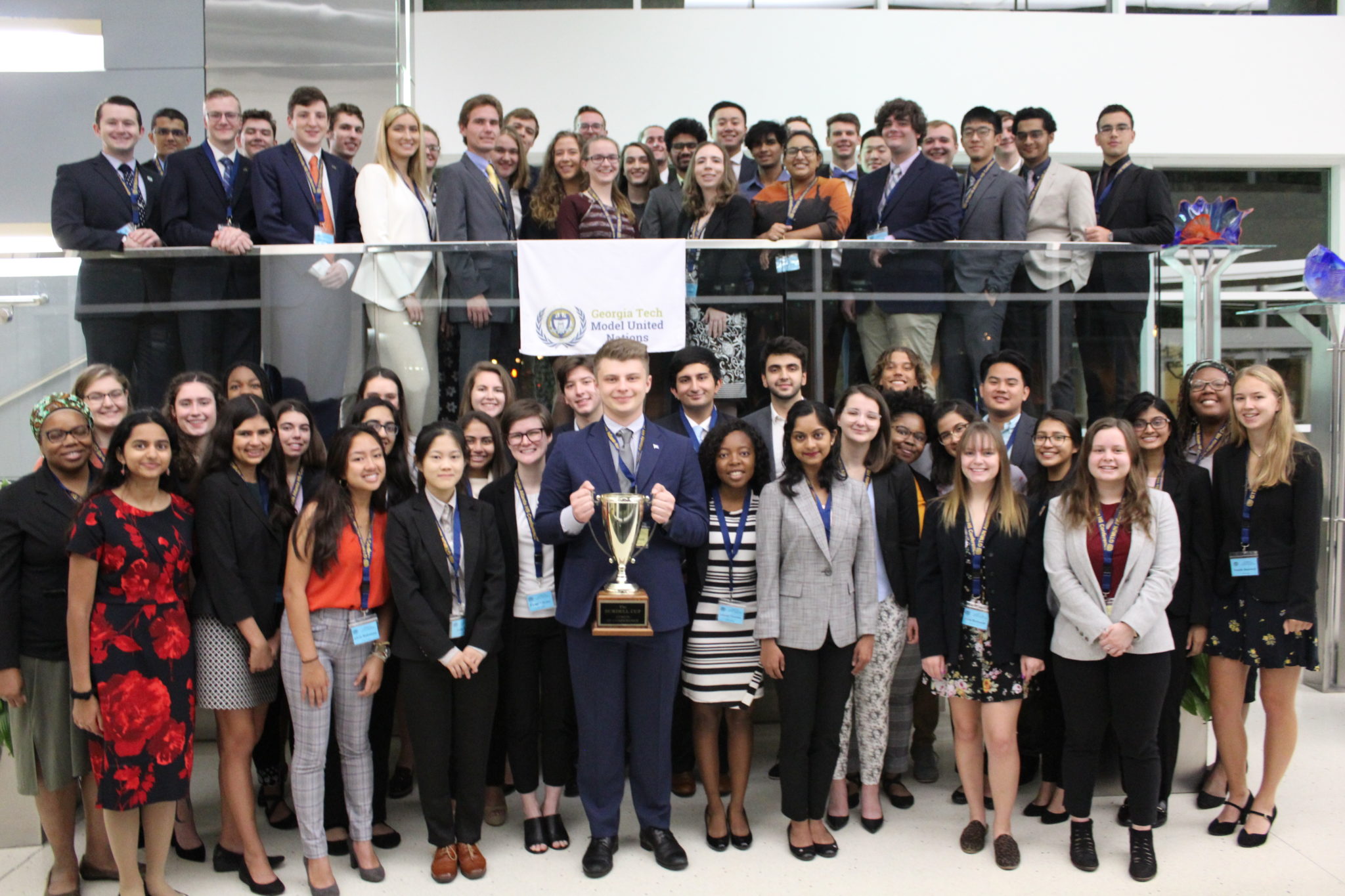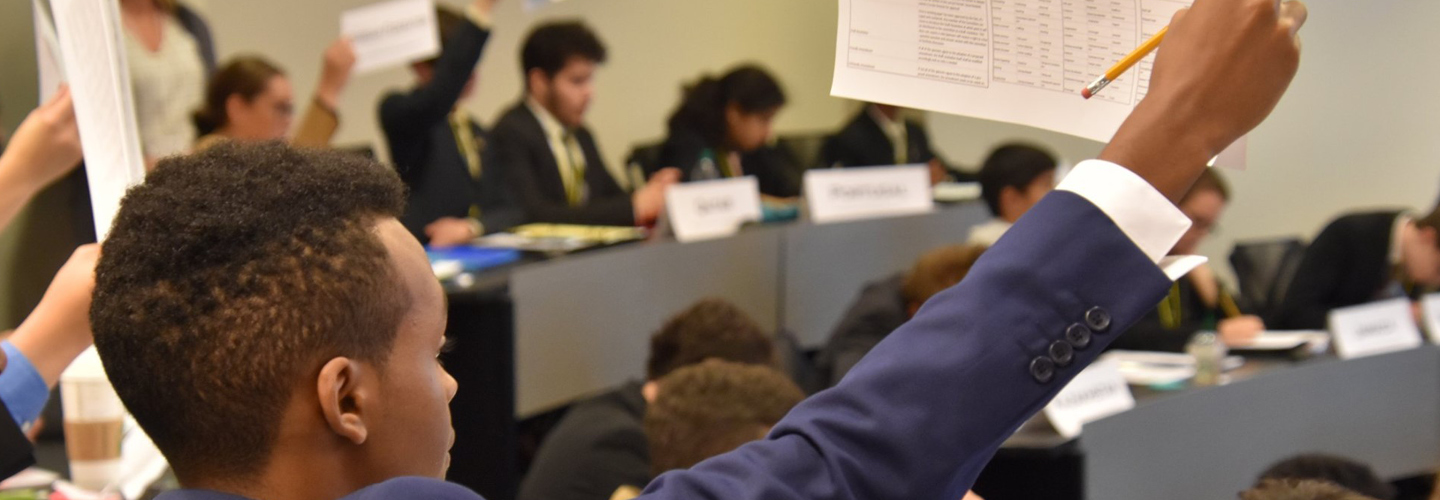 To complement their educational experience, Nunn School students participate in a wide range of extracurricular activities. Georgia Tech has more than 500 student organizations for students who want to connect, make friends, and build skills. Activities range from cultural, religious, recreational activities, and political organizations to leisure and service among many others!
To complement their educational experience, Nunn School students participate in a wide range of extracurricular activities. Georgia Tech has more than 500 student organizations for students who want to connect, make friends, and build skills. Activities range from cultural, religious, recreational activities, and political organizations to leisure and service among many others!
Some INTA students are involved in Books Not Bombs, Energy Club, Model NATO, the Simulation and Modeling Student Organization (SAMSO), and the International Affairs Student Organization, which engage Nunn School faculty advisors.
Students are also active in other Georgia Tech organizations including Student Government Association (SGA), AIESEC (an international business group), Model United Nations, intramural and intercollegiate athletics, Greek organizations, and the Technique, the student newspaper.
Model NATO
Faculty Advisor: Chris McDermott
Model NATO simulates the decision-making processes of the North Atlantic Treaty Organization. Students represent member countries, engage in policy research, and develop diplomatic negotiation skills through conference participation.
Books Not Bombs
Faculty Advisor: Katja Weber
Books Not Bombs is an organization on Tech's campus that gets students excited about sharing their love for learning and education. They partner with the IRC (International Rescue Committee) to send GT students as tutors to Clarkston High School. The tutors help refugee students with homework in all areas and applications and also host professional development workshops. These students love getting to connect with high schoolers in Clarkston.
Energy Club
Faculty Advisor: Adam Stulberg
The Energy Club seeks to inspire and prepare the next generation of individuals knowledgeable in the complex interaction energy-related world. We strive to bring together the technology, policy and business of the energy landscape to better understand the issues and contribute to the dialogue. We offer a great opportunity to get involved and network with many influential energy leaders on campus and across the country. The interdisciplinary nature of the topic ensures that there is something for everyone in the club. We cater to all majors and both graduate and undergraduate students.
International Affairs Student Organization (IASO)
Faculty Advisor: Chris McDermott
The International Affairs Student Organization (IASO) promotes global awareness on the Georgia Tech campus and serves as a resource for international affairs students to learn more about the Sam Nunn School, connect with fellow INTA students and faculty, and get involved in international affairs! All majors are welcome. Learn more at @iasogatech on Instagram.
Simulation and Modeling Student Organization (SAMSO)
Faculty Advisor: Chris McDermott
The Georgia Tech Simulation and Modeling Student Organization (SAMSO) provides a platform for students interested in military science, defense policy, and strategic studies to engage in discussions, simulations, and networking opportunities related to national and international security.

